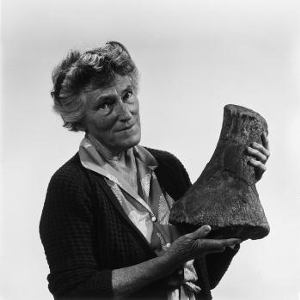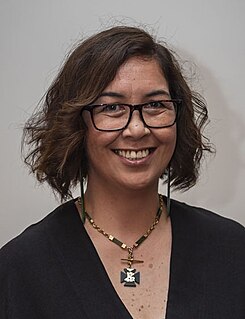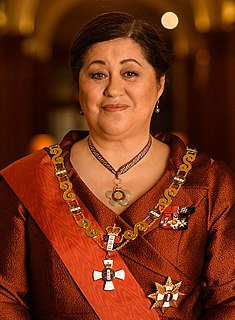
Massey University is a university based in Palmerston North, New Zealand, with significant campuses in Albany and Wellington. Massey University has approximately 30,883 students, 13,796 of whom are extramural or distance-learning students, making it New Zealand's second largest university when not counting international students. Research is undertaken on all three campuses, and more than 3,000 international students from over 100 countries study at the university.

Margaret Elaine Gardner is an Australian academic who is the current Vice-Chancellor of Monash University, in office since 2014. She was previously Vice-Chancellor and President of RMIT University from 2005 to 2014, and has a background in economics.
Swinburne University of Technology Sarawak Campus is the foreign branch campus of Swinburne University and is located in Kuching, Sarawak, Malaysia. Established in 2000, Swinburne Sarawak operates as a partnership between the Sarawak State Government and Swinburne Australia. The initiative behind the Sarawak campus is part of a long term strategy by Swinburne Australia to "globalize its operations and provide its students with international living, working and learning opportunities".

Joan Wiffen was a New Zealand amateur paleontologist.

Sir Mason Harold Durie is a New Zealand professor of Māori Studies and research academic at Massey University. He is known for his contributions to Māori health. In 2020, he was appointed to the Order of New Zealand, the highest honour in New Zealand's royal honours system.

Vada Harlene Hayne is an American-born academic administrator who was the vice-chancellor and a professor of psychology at the University of Otago in New Zealand, before moving to Western Australia to take up the position of vice-chancellor at Curtin University in April 2021.

Rawinia Ruth Higgins is a New Zealand Māori academic of Tūhoe descent, whose research focuses on language and culture.

Dame Alcyion Cynthia Kiro is a New Zealand public health academic, administrator, and advocate, who has served as the 22nd Governor-General of New Zealand since 21 October 2021. Kiro is the first Māori woman, the third person of Māori descent, and the fourth woman to hold the office.

Barbara Ruth Holland is a New Zealand born Australian scientist. She is a Professor of mathematics and member of the Theoretical Phylogenetics Group at the School of Mathematics & Physics at the University of Tasmania. She has made substantial contributions to the methods for reconstructing phylogenetic trees from DNA and protein sequence data. Holland has published over 50 journal articles, presented over 30 invited or keynote lectures, refereed five conference proceedings, 2 book chapters and 1 book review. She is a senior editor of the scientific journal Molecular Biology and Evolution.

Dame Margaret Blackwood was an Australian botanist and geneticist. She attended the University of Melbourne and lectured there for the majority of her career, becoming deputy chancellor after her academic retirement. She was appointed Dame Commander of the Order of the British Empire in 1981 and was inducted posthumously into the Victorian Honour Roll of Women in 2001.

Jan Thomas is a veterinary scientist and career academic. Thomas is currently the sixth vice-chancellor of Massey University, New Zealand and the second woman to hold the position. Thomas is the first female veterinarian and only the second veterinarian to become a Vice-Chancellor in either Australia or New Zealand.
Edward David Penny CNZM FRSNZ is a theoretical biologist from New Zealand and evolutionary biologist.
Libby Liggins is an evolutionary ecologist and a Senior Lecturer in the School of Natural and Computational Science at Massey University, Auckland, New Zealand, as well as a research associate at Auckland Museum. Her research uses genetic and genomic data to explore the biogeography, population ecology, and biodiversity of marine organisms.
Joan Robb was a New Zealand herpetologist and wildlife tour guide.
Aroha G. Harris is a Māori academic. As of 2020, Harris is an associate professor at the University of Auckland, specialising in Māori histories of policy and community development. She is also a member of the Waitangi Tribunal.

Neil John Gemmell, is a New Zealand geneticist. His research areas cover evolutionary genetics and genomics, molecular ecology, and conservation biology. Originally from Lower Hutt, he obtained his PhD at La Trobe University in Melbourne, Australia. Since 2008, Gemmell has been a professor at the University of Otago and since 2019 holds one of their seven Sesquicentennial Distinguished Chairs. Significant work includes the search of the Loch Ness Monster (2018) and the sequencing of the tuatara genome. In 2020, Gemmell received the Hutton Medal by the Royal Society Te Apārangi.
Brigid Heywood, born to an Irish mother, is a chemist and the Vice Chancellor of the University of New England (UNE), Australia.

Karen Ann Stockin is a New Zealand academic marine ecologist, and as of 2021 is a full professor at Massey University. Her research focuses on animal welfare and the impacts of human activities on cetacean populations, including tourism effects, and persistent marine contaminants.
Diana Florence Hill is a New Zealand academic, and a full professor at the University of Otago, specialising in molecular genetics. Hill's team's work on the genetics of animal production was awarded a Silver Medal by the Royal Society in 1996. She has been a Fellow of the Royal Society Te Apārangi since 1997.
Jennifer Ann Ogden is a New Zealand clinical neuropsychologist, and was an associate professor in the Department of Psychology, University of Auckland. She is a fiction and non-fiction author, and has been a Fellow of the Royal Society Te Apārangi since 1999.












